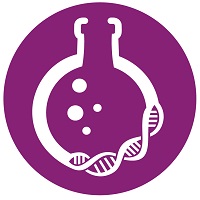Bioanalytics
Rapid Fires: AI/ML in Bioanalysis
Innovating Bioanalytical Reporting: Assessing Piloted AI Reporting Tools at Celerion
Monday, November 10, 2025
3:00 PM - 3:15 PM CT
Location: 221 CD
- MC
Mark Campbell
Bioanalytical Principal Investigator
Celerion
Lincoln, Nebraska
Rapid Fire Speaker(s)
This presentation outlines a pilot initiative launched by Celerion within its GxP-regulated bioanalytical laboratories to evaluate the feasibility and effectiveness of AI-powered report writing tools, designed to streamline bioanalytical report generation while maintaining regulatory compliance and quality standards. The primary goals of the pilot are to assess whether introducing an AI reporting tool can reduce report generation turnaround time, improve consistency across reports, minimize manual drafting, and reduce burdens on scientific and quality review teams, all while aligning with regulatory agency expectations.
Key challenges in traditional report generation include inconsistencies in language and structure across authors, lengthy drafting and revision cycles, and high resource consumption during quality control and assurance phases. Additionally, even minor deviations from reporting templates can lead to delays or rework, particularly during Sponsor reviews or regulatory submissions. By introducing AI reporting tools, Celerion aims to streamline and standardize report writing while improving the traceability of data and decisions throughout the reporting process.
During the pilot, AI platforms will be tested across multiple small molecule validation and bioanalytical studies to evaluate performance in terms of speed, accuracy, and regulatory alignment. Considerations around data security, version control, and audit trail generation will be discussed to demonstrate how the tool is designed for integration into a compliant reporting workflow. Reflections on future scalability of AI-assisted bioanalytical reporting in regulated environments will be presented.
Key challenges in traditional report generation include inconsistencies in language and structure across authors, lengthy drafting and revision cycles, and high resource consumption during quality control and assurance phases. Additionally, even minor deviations from reporting templates can lead to delays or rework, particularly during Sponsor reviews or regulatory submissions. By introducing AI reporting tools, Celerion aims to streamline and standardize report writing while improving the traceability of data and decisions throughout the reporting process.
During the pilot, AI platforms will be tested across multiple small molecule validation and bioanalytical studies to evaluate performance in terms of speed, accuracy, and regulatory alignment. Considerations around data security, version control, and audit trail generation will be discussed to demonstrate how the tool is designed for integration into a compliant reporting workflow. Reflections on future scalability of AI-assisted bioanalytical reporting in regulated environments will be presented.
Learning Objectives:
- Understand the current challenges faced by CROs in delivering consistent, regulatory-compliant bioanalytical reports within increasingly compressed timelines.
- Explore roles and functionalities of AI-powered report writing technology in GxP-regulated bioanalytical laboratory settings.
- Evaluate feasibility, benefits, and limitations in addressing efficiency, quality, and compliance challenges in regulated reporting workflows.


